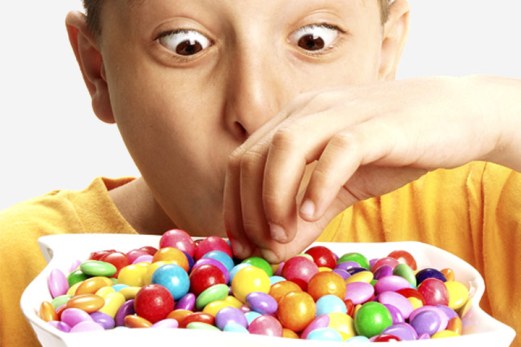When kids delight in sugary foods, they turn wild and bounce off every available surface. This is, as most parents will attest, a fact. During this Special Feature, we ask whether or not this general knowledge holds up to scientific scrutiny.
You are at a party, and there are around 20 kids, aged 3–6. The noise is deafening and also the candy bowls are empty. Screams of joy fill the air as parents marvel at their offspring’s sugar-induced bedlam.

But what does the science say? Will sugar increase the chance of hyperactivity in children? Perhaps surprisingly, the data says “probably not.” This will return as a surprise to anyone who has attended a gathering of kids where sweet treats are available, therefore let’s dive into the proof or lack thereof.
The question of whether or not sugar influences children’s behavior began to generate interest within the 1990s and a flurry of studies ensued. In 1995, JAMA published a meta-analysis that raked through the findings of 23 experiments across 16 scientific papers.
The authors solely included studies that had used a placebo and were blinded, which suggests that the kids, parents, and teachers involved did not know who had received the sugar and who had been given the placebo.

Some parents believe that their kid is particularly sensitive to sugar. To check whether or not this might be the case, one group of researchers compared 2 teams of children:
25 “normal” kids aged 3–5
23 kids, aged 6–10, whose parents represented them as being sensitive to sugar
Each family followed 3 experimental diets in turn and each for three weeks. The diets were:
High in sucrose, with no artificial sweeteners
Low in sucrose, however with aspartame as a sweetener
Low in sucrose, however with saccharin — a placebo — as a sweetener
The study included aspartame because the authors justify, because it, too, has been “considered a possible reason for hyperactivity and other behavior issues in kids.”

A study that underlines this point appeared within the Journal of Abnormal child psychology in 1994. The researchers recruited 35 boys aged 5–7 whose mothers represented them as being behavioral “sugar sensitive.” In the late 1970s and early 1980s, there was a fresh surge of interest in the sugar–hyperactivity theory. A variety of studies appeared to show that kids who were the most hyperactive consumed a lot of sugar.
However, these studies were cross-sectional, which means that they studied one population of kids at one point in time. As the authors of the meta-analysis cited above explain, from these findings, it’s impossible to know whether or not sugar causes hyperactivity or whether hyperactivity drives increased sugar intake.


